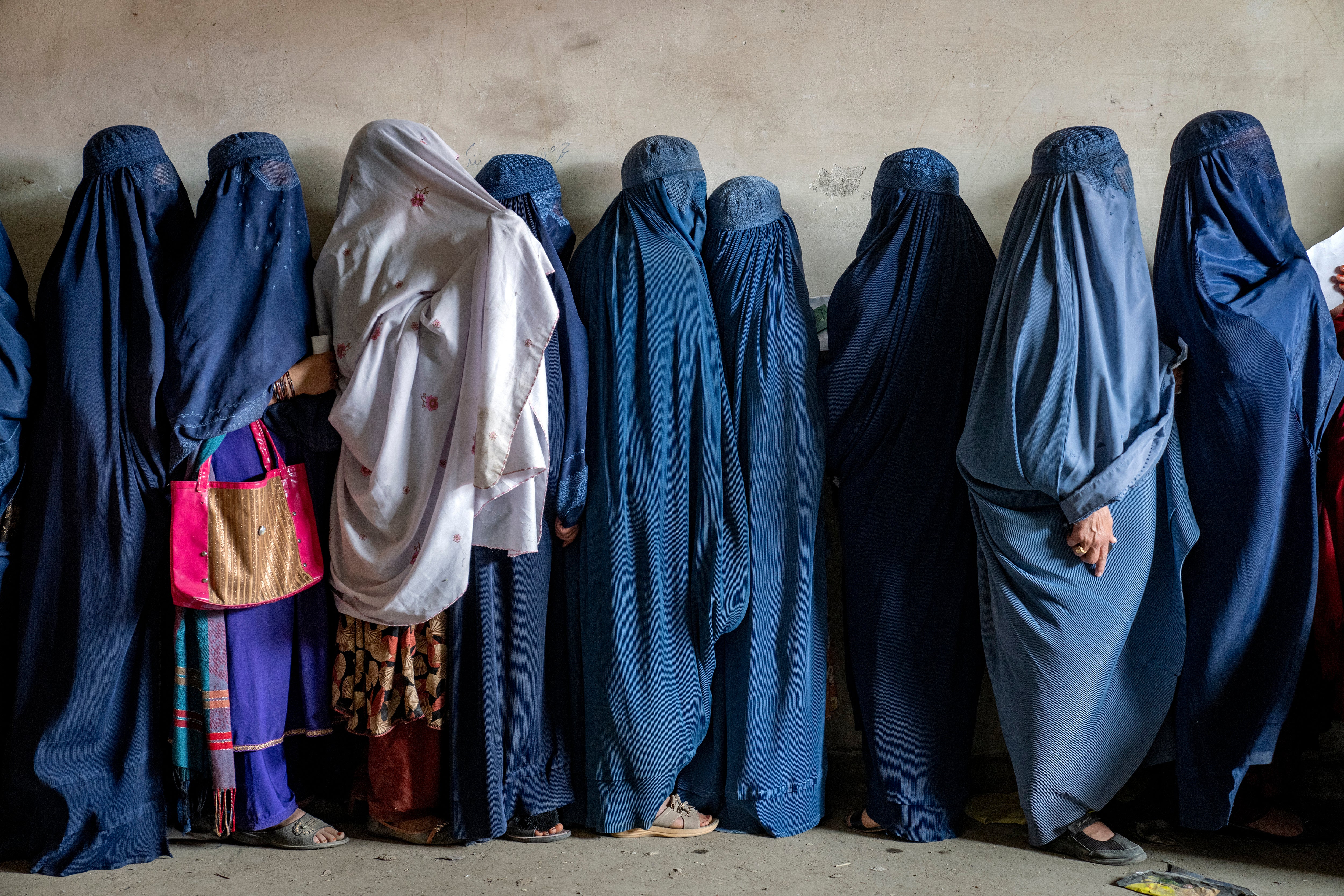Taliban rejects UN concerns over laws banning women's voices and bare faces in public
The Taliban has rejected concerns and criticism from the United Nations over new vice and virtue laws which include a ban on women’s voices and bare faces in public

Your support helps us to tell the story
From reproductive rights to climate change to Big Tech, The Independent is on the ground when the story is developing. Whether it's investigating the financials of Elon Musk's pro-Trump PAC or producing our latest documentary, 'The A Word', which shines a light on the American women fighting for reproductive rights, we know how important it is to parse out the facts from the messaging.
At such a critical moment in US history, we need reporters on the ground. Your donation allows us to keep sending journalists to speak to both sides of the story.
The Independent is trusted by Americans across the entire political spectrum. And unlike many other quality news outlets, we choose not to lock Americans out of our reporting and analysis with paywalls. We believe quality journalism should be available to everyone, paid for by those who can afford it.
Your support makes all the difference.The Taliban on Monday rejected concerns and criticism of the United Nations over new vice and virtue laws which ban women in Afghanistan from baring their faces and speaking in public places.
Roza Otunbayeva, who heads the U.N. mission in the country, UNAMA, said Sunday the laws provided a “distressing vision” for Afghanistan’s future. She said the laws extend the “ already intolerable restrictions ” on the rights of women and girls, with “even the sound of a female voice” outside the home apparently deemed a moral violation.
Zabihullah Mujahid, main spokesman for the Taliban’s government, in a statement warned against “arrogance” from those who may not be familiar with Islamic Sharia law, particularly non-Muslims who might express reservations or objections.
“We urge a thorough understanding of these laws and a respectful acknowledgment of Islamic values. To reject these laws without such understanding is, in our view, an expression of arrogance,” he said.
Afghanistan’s Taliban rulers last Wednesday issued the country’s first set of laws to prevent vice and promote virtue.
They include a requirement for a woman to conceal her face, body and voice outside the home. They also ban images of living beings, such as photographs.
“After decades of war and in the midst of a terrible humanitarian crisis, the Afghan people deserve much better than being threatened or jailed if they happen to be late for prayers, glance at a member of the opposite sex who is not a family member, or possess a photo of a loved one,” Otunbayeva said.
In response to the UNAMA statement, Mujahid added, “We must stress that the concerns raised by various parties will not sway the Islamic Emirate from its commitment to upholding and enforcing Islamic Sharia law."